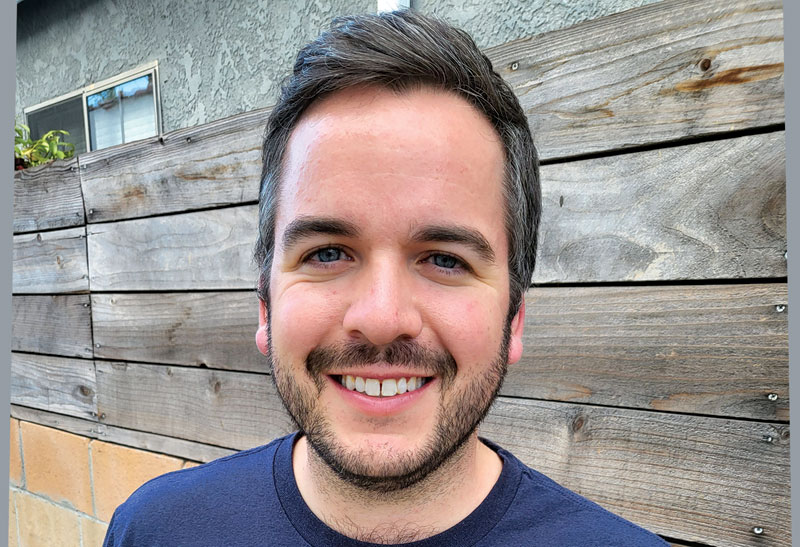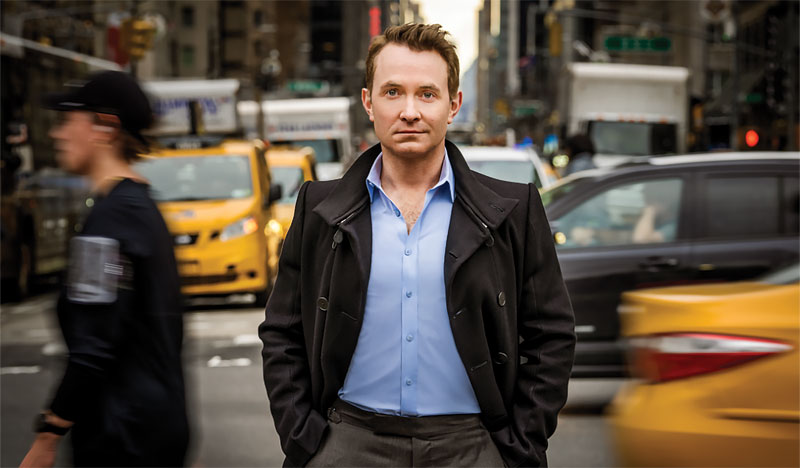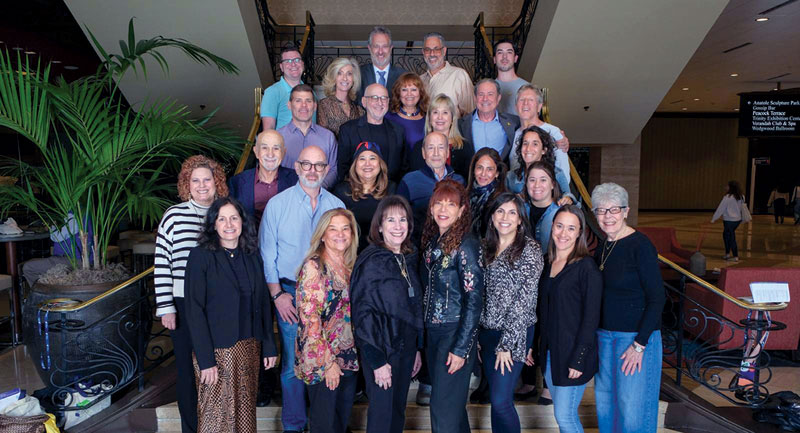A curious thing happened in the pages of The Jewish Journal the week of Nov. 20. During a period when a host of issues of major importance to the American Jewish community were occuring that commanded front page attention elsewhere, The Journal chose to devote the cover story and an editorial in the Nov. 20 issue to the complaints of a disgruntled documentary director and his co-writer against Moriah Films of the Simon Wiesenthal Center. In spite of The Journal’s claims that it was not “picking on the Wiesenthal Center,” one wonders what the editorial staff’s true motives were in giving an inordinate amount of space to the attempt by these individuals to politicize what was for all intents and purposes a dispute over the best creative approach to a film about Israel’s first 50 years.
As one of the producers of the documentary in question (and now the director as well), I am especially concerned and aggrieved at the number of inaccuracies and distortions that appeared in The Journal’s coverage of the events surrounding our decision to reject the creative approach taken by Mark Jonathan Harris and Stuart Schoffman to our film looking at Israel’s 50th birthday. On the cover, in Managing Editor Rob Eshman’s editorial and in reporter Tom Tugend’s cover story, it was stated that $1 million had been spent on a documentary that we will never see. This is just not true. The $1 million is the overall budget for the film. Approximately $250,000 — the amount paid to Harris and Schoffman — can be considered a loss. The other funds spent to date were for shooting interviews, live action footage and archival film and stills, material that will be used throughout the documentary we are continuing to produce. In the worst case scenario, this loss could contribute to an expansion of our $1 million to $1.2 million. The Journal’s banner headline and later assertions that $1 million had already been spent on this project is patently untrue and had The Journal cared about the truth it could have verified this with me or my producing partner, Rabbi Marvin Hier.
Furthermore, The Journal gives the impression that this film has been shelved by the Wiesenthal Center. This is also completely false. The only thing that has been shelved was the approach taken by Harris and his co-writer, which led to what I believe is a dull and plodding film. Our present approach involves a dramatic and hard-hitting narrative based on the writing of respected historian Sir Martin Gilbert and adapted by Emmy Award-winning screenwriter Scott Goldstein. The new script will not only examine dramatic moments in Israeli history, it will look realistically at the problems that have faced and continue to face the country today. Major players who have figured prominently in this history will also appear throughout the film, which will be ready for release in the spring of 1999. This has been a project that has been ongoing in spite of the problems created by the approach of Harris and Schoffman.
In Rob Eshman’s editorial, he alleged that the Weisenthal Center had “approved the script, gave the filmmakers a green light every step of the way and then pulled the plug.” Mr. Eshman only got part of the scenario correct. In spite of the fact that Stuart Schoffman calls himself one of the screenwriters of this project, the approach he and Mark Harris took to the film had no script. It was all interviews with no narrative whatsoever. A treatment, which I helped to develop during several weeks of travel throughout Israel with Harris and Schoffman, was approved by Rabbi Hier, Merv Adelson and Marvin Josephson (the two chairs of the International Israel at 50 commemoration committee). Hier raised his concerns that a totally interview-driven film might not be as engaging or dramatic as the narrative-driven documentaries the Wiesenthal Center had made its reputation with: the Oscar-winning “Genocide,” the award-winning “Echoes That Remain” and “Liberation,” and, most recently, the Oscar-winning “The Long Way Home.” Hier was also concerned that the decision by Harris and Schoffman not to interview major figures in the Jewish and Arab world about their roles in 50 years of Israeli history might also be a mistake. At the same time, the promise of the kind of film described in the treatment was so encouraging that Hier and others put their misgivings aside and production began.
Almost as quickly as production began, so did production problems and creative disputes. The green light stopped with the treatment and red lights became a regular occurrence with this project. In Tugend’s cover story, Harris himself acknowledged how much trouble the film was in from the time its first rough cut was screened at the beginning of 1998. In February, Hier, who was seeing a complete rough cut for the very first time, was most vocal in his complete dissatisfaction with the film. “It’s boring, it’s too negative and lacks any political balance,” he said. Most of us on the creative side were also concerned that the film contained almost no historical context. I also strongly objected to the lack of any material about Israeli arts, culture, science and industry. The most telling response to this rough-cut screening came from one attendee who stated after seeing this film he could not understand why anyone would want to spend five minutes there. After that screening, Harris agreed with some of the criticisms and admitted that not only was the film too negative and unbalanced politically, it was not working from a structural point of view. He promised Hier that he would fix the problems in time for a planned second rough-cut screening in March.
From March until May, the director and his co-writer tried over and over again to restructure their approach to fix what in our view was the dull and plodding rhythm of the film and its historical problems. What was becoming eminently clear was that no amount of restructuring or revisiting their approach was going to fix what was essentially unfixable.
Mark Harris stated to reporter Tugend that neither Hier nor I saw his final cut of the film, thus making our decision appear to be capricious or based on our fear of offending Wiesenthal Center donors. Nothing can be further from the truth. I sat and watched what was to become his final cut. Simply put, I thought it was a disaster. I based my decision to halt production on this approach to the film on this cut that did not deviate at all from what Harris and Schoffman consider to be their final cut. The only way to fix this film, I told Harris, was to return to a script-driven format, a change Hier had been advocating for some time. Harris was understandably disappointed. Out of respect to our past relationship, I did allow him to finish his rough cut over a four-day period.
I have sympathy for both Harris and Schoffman. No one likes to be told their work is uninteresting. No one likes to be rejected. But it happens in the film world. And while it may make them feel better to blame their rejection on what they claim are politics or the inability of the American Jewish community to look realistically at Israel, it does not change the fact that what they called “A Dream No More” was dismissed because it did something I believe no film should do: it bored people. No amount of political posturing can change that fact. Fortunately for Moriah Films of the Simon Wiesenthal Center and its supporters who have come to expect a certain caliber of filmmaking, our “bad dream” has ended and we are on the road to completing an exciting, dramatic and realistic documentary about Israel’s first 50 years. We look forward to sharing it with movie audiences come spring. I only hope that The Jewish Journal devotes half the coverage to the release of our film as it did to the sour grapes of Mark Harris and Stuart Schoffman.






















 More news and opinions than at a Shabbat dinner, right in your inbox.
More news and opinions than at a Shabbat dinner, right in your inbox.